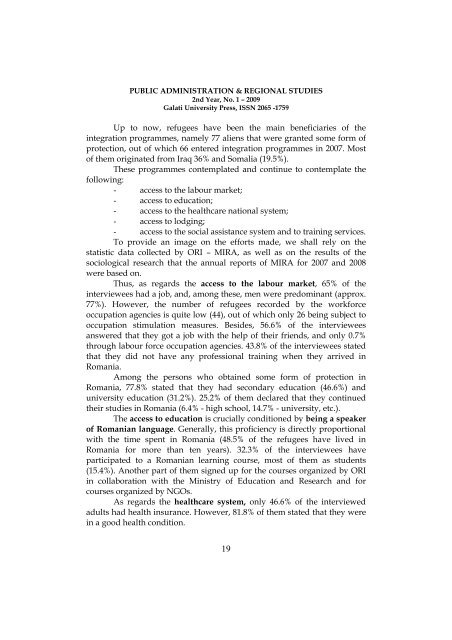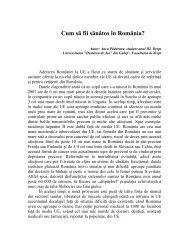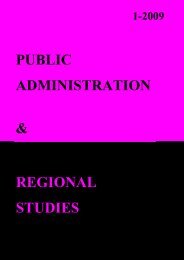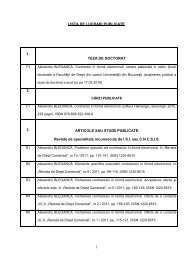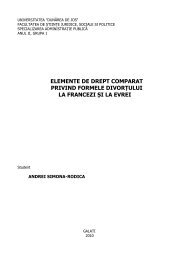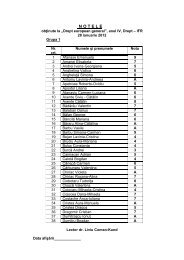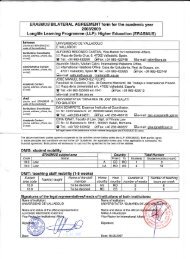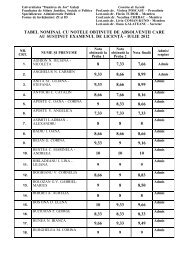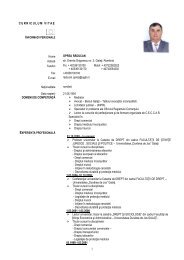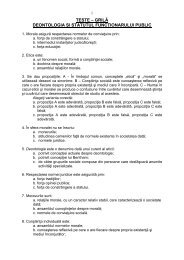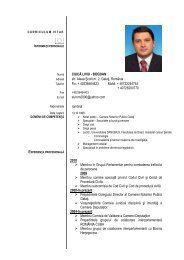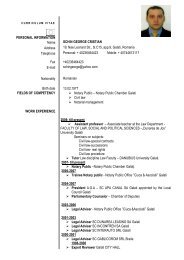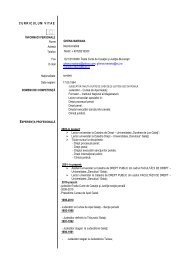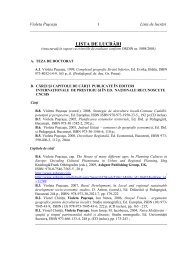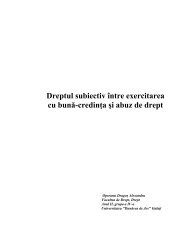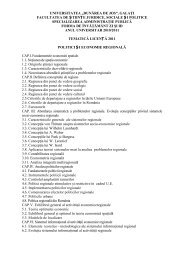regional studies public administration - Facultatea de Drept ...
regional studies public administration - Facultatea de Drept ...
regional studies public administration - Facultatea de Drept ...
Create successful ePaper yourself
Turn your PDF publications into a flip-book with our unique Google optimized e-Paper software.
PUBLIC ADMINISTRATION & REGIONAL STUDIES<br />
2nd Year, No. 1 – 2009<br />
Galati University Press, ISSN 2065 -1759<br />
Up to now, refugees have been the main beneficiaries of the<br />
integration programmes, namely 77 aliens that were granted some form of<br />
protection, out of which 66 entered integration programmes in 2007. Most<br />
of them originated from Iraq 36% and Somalia (19.5%).<br />
These programmes contemplated and continue to contemplate the<br />
following:<br />
- access to the labour market;<br />
- access to education;<br />
- access to the healthcare national system;<br />
- access to lodging;<br />
- access to the social assistance system and to training services.<br />
To provi<strong>de</strong> an image on the efforts ma<strong>de</strong>, we shall rely on the<br />
statistic data collected by ORI – MIRA, as well as on the results of the<br />
sociological research that the annual reports of MIRA for 2007 and 2008<br />
were based on.<br />
Thus, as regards the access to the labour market, 65% of the<br />
interviewees had a job, and, among these, men were predominant (approx.<br />
77%). However, the number of refugees recor<strong>de</strong>d by the workforce<br />
occupation agencies is quite low (44), out of which only 26 being subject to<br />
occupation stimulation measures. Besi<strong>de</strong>s, 56.6% of the interviewees<br />
answered that they got a job with the help of their friends, and only 0.7%<br />
through labour force occupation agencies. 43.8% of the interviewees stated<br />
that they did not have any professional training when they arrived in<br />
Romania.<br />
Among the persons who obtained some form of protection in<br />
Romania, 77.8% stated that they had secondary education (46.6%) and<br />
university education (31.2%). 25.2% of them <strong>de</strong>clared that they continued<br />
their <strong>studies</strong> in Romania (6.4% - high school, 14.7% - university, etc.).<br />
The access to education is crucially conditioned by being a speaker<br />
of Romanian language. Generally, this proficiency is directly proportional<br />
with the time spent in Romania (48.5% of the refugees have lived in<br />
Romania for more than ten years). 32.3% of the interviewees have<br />
participated to a Romanian learning course, most of them as stu<strong>de</strong>nts<br />
(15.4%). Another part of them signed up for the courses organized by ORI<br />
in collaboration with the Ministry of Education and Research and for<br />
courses organized by NGOs.<br />
As regards the healthcare system, only 46.6% of the interviewed<br />
adults had health insurance. However, 81.8% of them stated that they were<br />
in a good health condition.<br />
19


